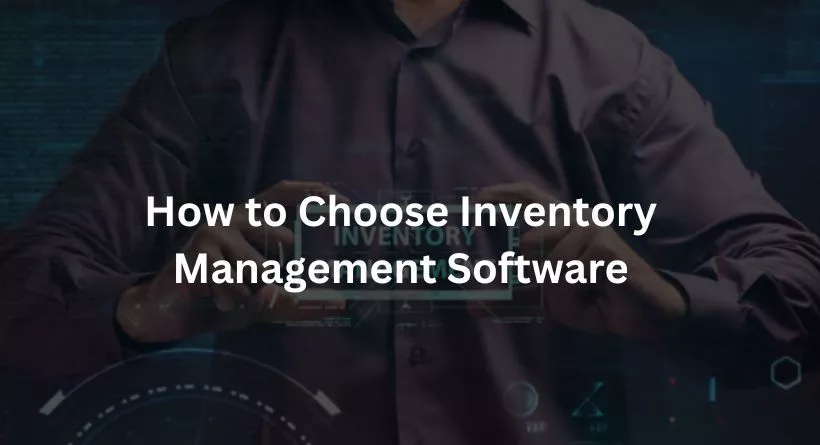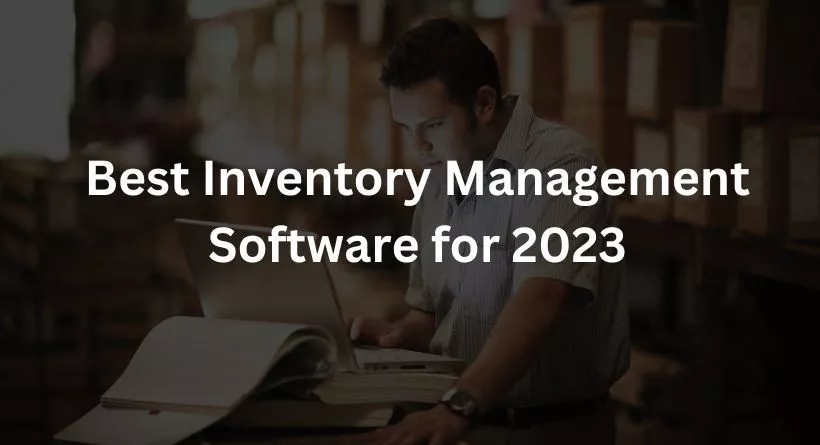All kinds of organizations may function more effectively, boost revenues, and automate inventory procedures with the use of inventory management software. Any firm that has inventory, regardless of the sector in which it operates, may benefit from using inventory management software to increase operational effectiveness, customer satisfaction, and overall profitability. The top software programs for inventory management were chosen by Forbes Advisor after extensive study into the finest options.
Why You Can Trust Forbes Advisor Small Business
With complete editorial independence, the Forbes Advisor Small Business team is dedicated to providing you with objective rankings and information. We base all of our material on product facts, strategic methodology, and expert insights to help you make the best choices possible for your business endeavors.
To assist you locate the top inventory management software choices, we have evaluated a number of software vendors. Our ratings take into account aspects like the cost, basic and supplementary features, real user evaluations, and a final evaluation by our team of experts. Our editorial staff alone determines all ratings.
Methodology
Software for inventory management does much more than just keep track of product levels and locations in a warehouse or retail space. The majority of inventory management systems offer a simplified company management solution that smoothly synchronizes inventory data with real-time sales, fulfillment, and buying activities.
Pricing
Regarding pricing, we took into account the services’ lowest and highest price tiers’ affordability as well as if they provide a free trial. Companies that provide upfront pricing were rated higher than those who demanded quotes from potential clients. 10% of our weighted scoring was attributed to this.
Features
The most common features used by most firms, such as barcodes, packaging and counting slips, components and assembly monitoring, low-stock alerts, and extensive stock reporting, were first evaluated to determine the top inventory management software options for 2023. Then, we looked at features for each price tier, time-saving automations like drop shipping and purchase orders, and specialized inventory solutions for manufacturers, B2B wholesalers, multichannel sellers, and retailers.
We concluded by looking at a wide range of inventory elements that companies require to grow operations effectively. These included general user friendliness, support for QR codes, kitted and bundled items, parts and assembly tracking, multiwarehouse management, dropship and 3PL automations, loss and theft controls, multiple vendors per item, pick, pack, and ship procedures, warehouse floor management, purchase order (PO) features, sales-based order forecasting, e-commerce integrations, online marketplace integrations, retail POS features or integrations, and mobile apps for scans, counts, and floor man. Features were given a 50% weighting in our scoring system.
Third-party reviews
To learn what actual consumers thought of each software vendor, we looked at reviews from these individuals. To provide the most accurate representation of reality and minimize bias, this involved ranking both the overall score from customers (looking for those that were 3.5 and higher out of 5) and the number of reviews for these scores (looking for providers that had at least 300 reviews on each third-party website we researched). Ten percent of the final score came from these.
Expert analysis
Our expert panel used the same third-party websites, such as Capture, G2, and Trust pilot, to analyze four essential parameters before making a choice on each software vendor. These criteria included ease of use, unique features, popularity, and cost-effectiveness. This analysis contributed 30% of the final score in total.
You may also like reading: How to Set Up Microsoft 365 Business Email in 4 Easy Steps
How to Choose Inventory Management Software

When selecting inventory management software, there are four essential factors to take into account. Some could suggest that the first factor is price, but that is oversimplified. A spreadsheet may be used by anybody to manage simple inventory tracking for no cost. Even on a modest scale, such endeavor takes a lot of time.
Consider how inventory management software solutions may benefit your company’s bottom line rather than just the expense. Spending a few hundred dollars a month on time-saving features is a fair bargain if an automated inventory system saves 10 to 20 staff hours each week.
The second factor to take into account when contrasting inventory systems is business processes. Analyze your company’s production and fulfillment processes, sales platforms, and stock monitoring, counting, buying, and receiving requirements. Make sure the technology you select can swiftly scale with growth and currently meets these demands and procedures.
The third main factor to take into account while choosing inventory management software is integrations. Integrating smoothly with online platforms, retail POS systems, vendors, shippers, 3PL services, and accounting systems is essential since no organization can manage inventory effectively in a silo. When evaluating inventory systems, look for ones that have open APIs for nearly universal connection or built-in connectors to the platforms you use.
Finally, make expansion plans. Data migration from inventory software that you’ve outgrown to a new system might halt operations completely. Similar to how inventory-driven business models evolve swiftly in today’s tech-driven world. Your in-house fulfillment business may seem to grow overnight, requiring additional warehouse space, 3PL fulfillment partners, and dropship suppliers. Software that expands as necessary through plan upgrades or feature additions is essential for continuous expansion.
Benefits of Inventory Management Software
Any firm that relies on inventory needs inventory management software. Retailers, online merchants, producers, and companies that provide services with the use of tools and equipment fall under this category.
Sound inventory management has several advantages, but most businesses cite increased earnings, simplified processes, and better customer service as its top advantages. However, a fine-grained optimization of inventory techniques is required to meet these objectives. The inventory management software comes into play here.
Efficiency and customer service, for instance, rely on precise stock tracking, timely purchases and deliveries, and real-time inventory synchronization with sales systems. Reliable inventory management software is required for each of these operational aspects. Similar to how reducing shrinkage, receiving mistakes, and inefficient storage increases earnings. A more lucrative operation is made possible with the aid of various operating enhancements and inventory management software, which is essential for identifying these problems.
You may also like reading: How to Get a Google Voice Number in 4 Easy Steps
Conclusion:
In conclusion, selecting the right inventory management software for your business is crucial for maintaining efficient operations, streamlining processes, and maximizing profitability. We have explored some of the best inventory management software options for 2023, taking into consideration their features, pricing, user-friendliness, and customer reviews. Whether you are a small startup or an established enterprise, there is a software solution out there that can meet your specific needs.
Remember, when choosing inventory management software, it’s essential to evaluate your requirements and consider factors such as scalability, integrations, reporting capabilities, and customer support. By investing in the right software, you can optimize your inventory management, reduce costs, minimize errors, and gain a competitive edge in the market.
We hope this article has provided you with valuable insights and guidance in selecting the best inventory management software for your business. Embrace the power of technology and take advantage of these innovative tools to streamline your operations and drive success.

